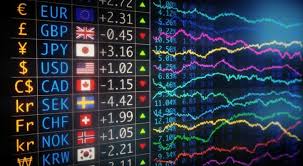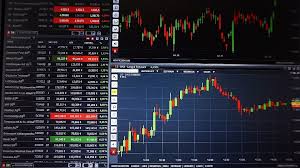
CFD Forex trading, or Contract for Difference trading in the Forex market, has become increasingly popular among traders seeking to capitalize on the price movements of currencies. As the world of finance evolves, understanding the mechanics and strategies behind CFD trading is crucial. In this article, we will delve into the various aspects of CFD Forex trading, including its advantages, risks, comparison to traditional Forex trading, and effective strategies for success. For those looking for a reliable cfd forex trading Trading Broker SA, it’s essential to evaluate options carefully in this dynamic trading landscape.
What is CFD Trading?
CFD trading is a form of derivative trading where traders speculate on the price movements of an asset without actually owning the underlying asset. In the context of Forex, this means traders can enter long or short positions on currency pairs, profiting from changes in exchange rates. The key feature of CFDs is that they allow for leverage, meaning traders can control a larger position than their initial capital would normally allow.
The Advantages of CFD Forex Trading
CFD Forex trading offers several advantages that make it an attractive option for both novice and experienced traders:
- Leverage: Traders can use leverage to amplify their potential returns. For instance, with a leverage ratio of 1:100, a trader can control a position size of $10,000 with just $100 in their account.
- Diverse Strategies: The ability to go long (buy) or short (sell) means traders can potentially profit in both rising and falling markets.
- No Ownership of Assets: Since traders do not own the underlying assets, there are fewer complications related to custody and management of physical currencies.
- Access to Global Markets: CFD Forex trading allows access to a wide range of currency pairs, including exotic currencies that may not be available for direct trading.
Understanding the Risks
While CFD Forex trading presents opportunities, it is also accompanied by significant risks. Understanding these risks is crucial for developing a sound trading strategy:
- Leverage Risks: While leverage can magnify profits, it can also amplify losses. Traders may lose more than their initial investment if the market moves against them.
- Market Volatility: The Forex market is highly volatile, and rapid price fluctuations can result in unexpected losses.
- Lack of Regulation: The CFD market is less regulated than traditional financial markets, which may expose traders to unethical practices by some brokers.
CFD vs. Traditional Forex Trading
Understanding the differences between CFD trading and traditional Forex trading is essential for traders to make informed choices:
| Feature | CFD Forex Trading | Traditional Forex Trading |
|---|---|---|
| Ownership of Asset | No | Yes |
| Leverage | Yes, usually higher | Yes, but typically lower |
| Fees and Commissions | Usually spread, with some brokers charging commission | |
| Market Accessibility | 24/5 with broad asset access | 24/5, primarily focused on currency pairs |
Effective CFD Forex Trading Strategies
Having effective trading strategies is vital for success in CFD Forex trading. Here are some commonly used strategies:
- Technical Analysis: Utilizing charts and indicators to predict future price movements based on historical data. Popular indicators include moving averages, RSI, and MACD.
- Fundamental Analysis: Assessing economic indicators, interest rates, and geopolitical events to inform trading decisions. Keeping up with news can provide insights into market movements.
- Risk Management: Implementing strict risk management measures, such as setting stop-loss orders and only risking a small percentage of trading capital on a single trade.
Choosing a CFD Forex Broker
Selecting a reliable CFD Forex broker is essential for a successful trading experience. Here are some criteria to consider:
- Regulation: Opt for brokers regulated by reputable financial authorities to ensure safety and fairness.
- Trading Platform: Evaluate the trading platform’s features and usability. A good platform should be user-friendly and offer essential tools and resources.
- Customer Support: Reliable customer support can be invaluable, especially for novice traders who may encounter issues.
Conclusion
CFD Forex trading offers unique opportunities and challenges. By understanding the mechanics of CFDs, the associated risks, and effective strategies, traders can enhance their trading skills and potentially achieve financial success. It is crucial to approach CFD trading with a solid plan and an understanding of the market dynamics. With careful analysis and disciplined trading, traders can navigate the complexities of the Forex market effectively.

